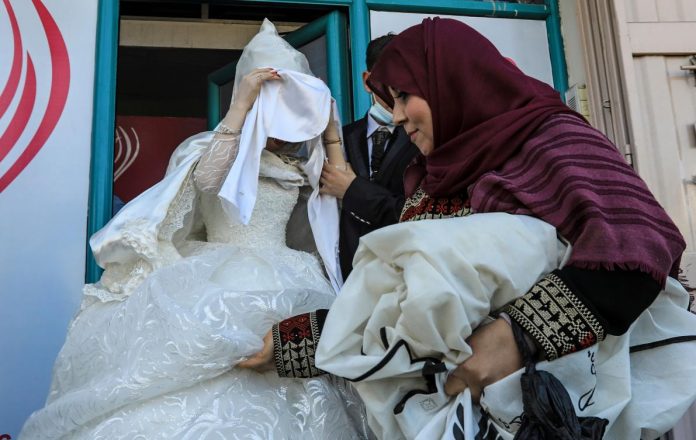GAZA CITY: To the sound of drums and flutes, a freshly coiffed Palestinian groom dances with his brothers, cousins and friends, anxiously waiting for his veiled bride to arrive in her shimmering gown.
It might have been a normal Gaza wedding, except for the venue — not a luxurious seaside hall, but a narrow alley in the Al-Rimal neighborhood of Gaza City.
Welcome to Gaza’s new pandemic-era weddings: they are small because of strict crowd limits, they are held outdoors, and they finish early to beat the curfews.
And they are a whole lot cheaper than usual.
“I’m not entirely happy because I would have preferred to celebrate it in a wedding hall,” said the groom, Mohammed Ahmed Ashour, wearing a blazer and burgundy tie.
But for his family, the 24-year-old merchant told AFP between dances, the pared-down nuptials have also brought welcome savings at a time of economic hardship.
Weddings in the Palestinian coastal enclave are usually extravagant affairs, held in large halls that dot the Mediterranean coastline.
Despite staggering poverty and unemployment rates of around 50 percent even before the pandemic, many Gazans spend several thousand dollars on weddings.
This year the virus has further impacted the economy in the strip, which has been under Israeli blockade since 2007, and is currently spreading rapidly across Gaza.
In recent weeks infections have multiplied and “the situation is getting out of control,” warned Doctor Ahmad Al-Jadba of Gaza City’s Shifa hospital.
On Friday, the Palestinian health ministry announced 922 new cases for the last 24 hours in Gaza, a daily record which takes the total number of people known to have been infected with the virus in the enclave to 18,333, including 86 deaths.
Hamas, the group that runs the strip, has banned large indoor gatherings to contain the spread of coronavirus.
Families have been forced to hold smaller weddings in less-than-fairytale settings — like alleys and backyards — but saved bundles in the process.
Ashour said these days many couples opt for scaled-back daytime nuptials which take “a little over an hour.”
Once the Ashours’ wedding was over, the musicians — three percussionists and a player of the traditional reed flute called a ney — headed home before the evening curfew.
They had more performances booked for the next day, as their small, traveling business is now thriving.
A few days later they were in Jabaliya, a town in the north of the strip, for the wedding of Ahmed Omar Khallah, a 28-year-old postman.
Khallah said that for him, too, the timing is good: “There is no work, no money, but we have saved a lot by marrying now,” he told AFP.
He was picking up his bride from a beauty salon.
Its proprietor, Fadwi, confirmed that “many young couples prefer to get married during the corona period because the costs are lower. They don’t have to rent wedding halls or pay for large buffets.”
Fadwi has changed his business hours to accommodate the new routine as Hamas police patrols enforce the night-time curfews.
“We now start work around 7:00 am,” he said, “because people only get married in ceremonies until 5:00 pm.”
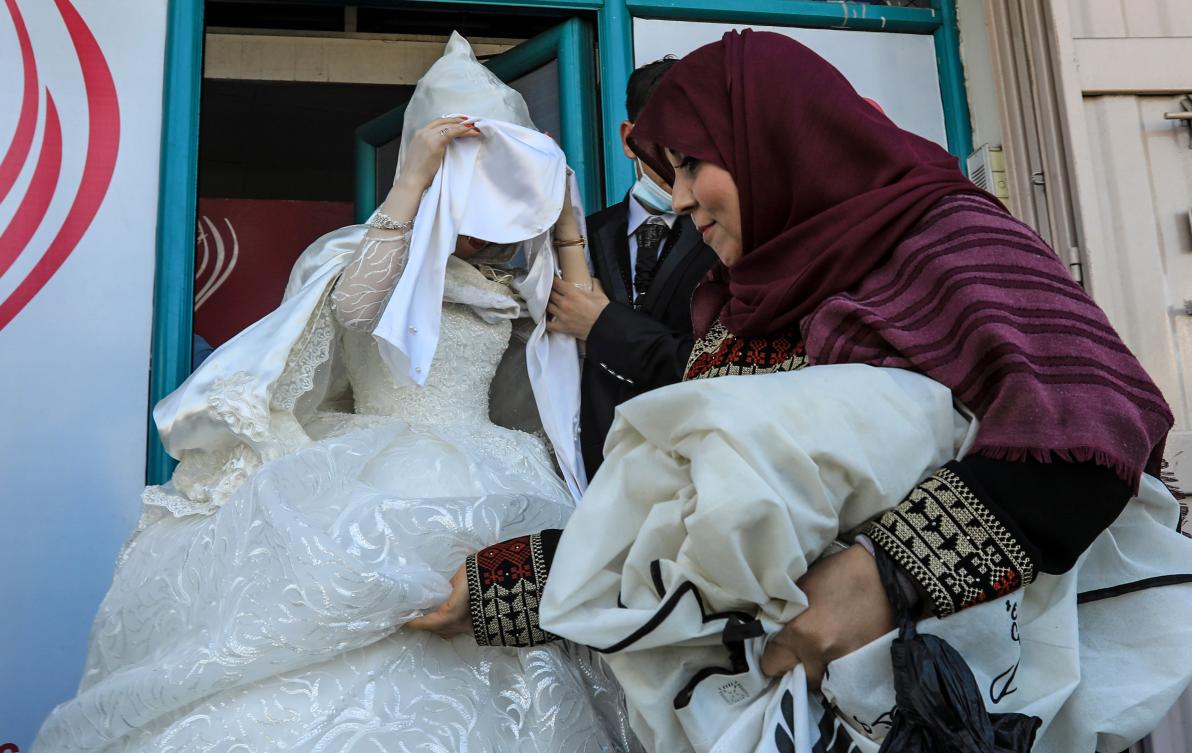
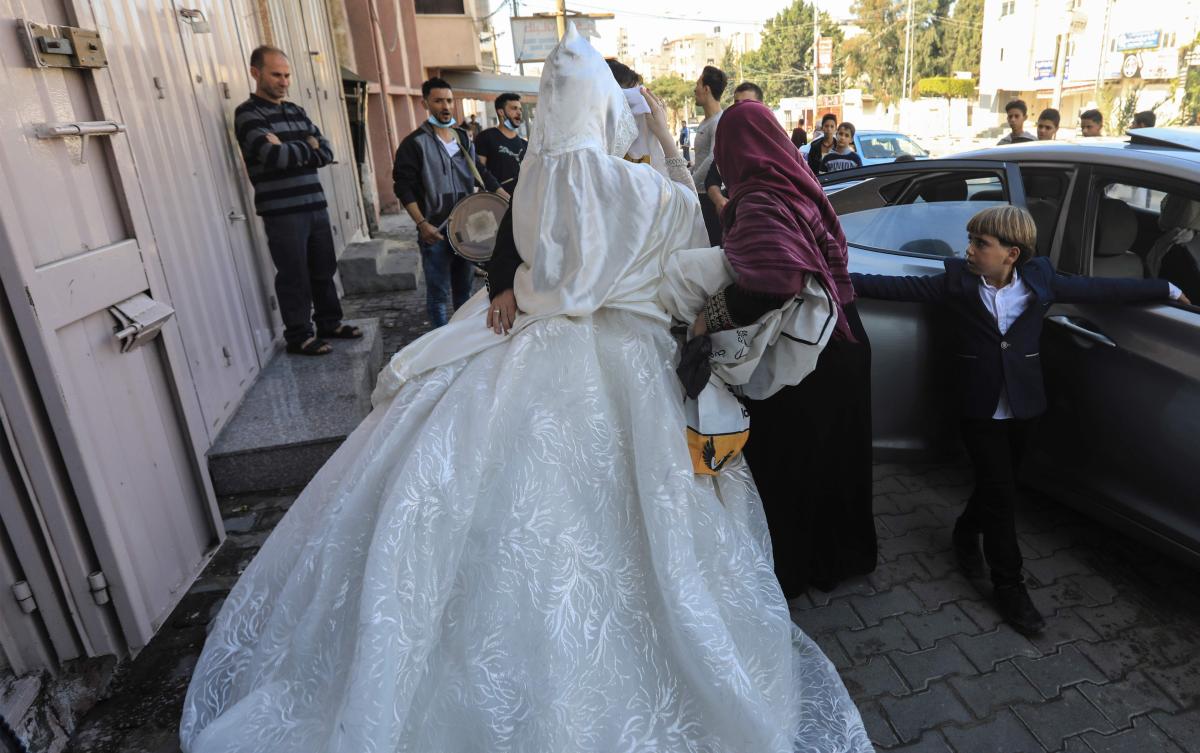
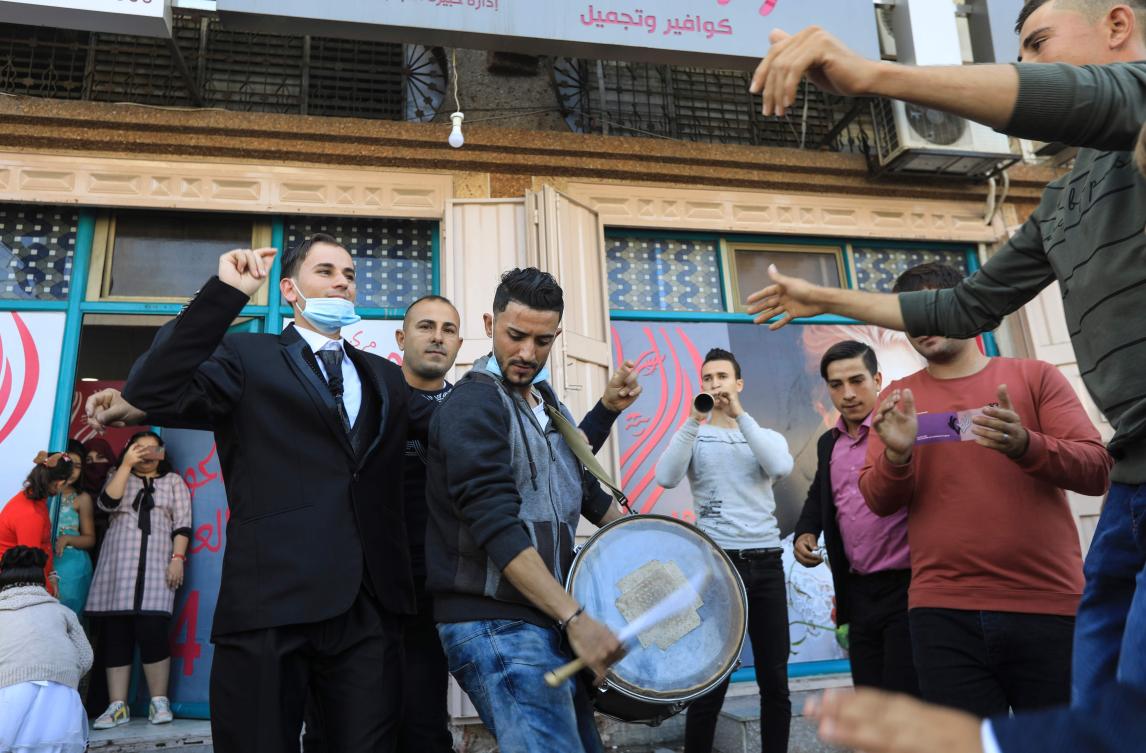
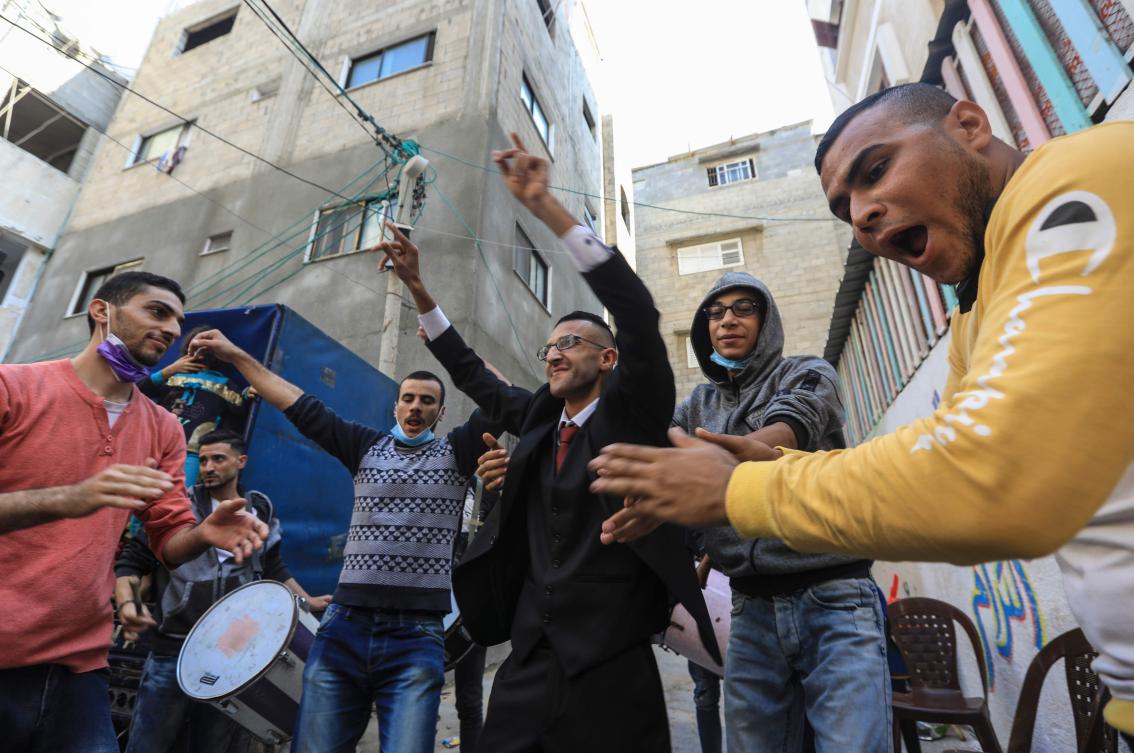
Palestinian girls compete in a rare Gaza boxing contestGaza’s health system days from being overwhelmed by COVID-19, advisers say

